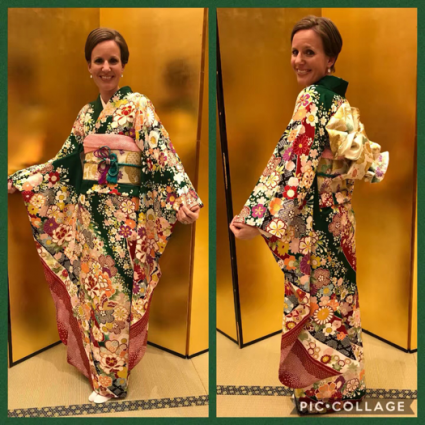A Personal Note
There I was … delighted to be back in Tokyo. Walking out of Haneda International Airport, I was greeted by an extremely polite taxi driver wearing white gloves as part of the service. The taxi seats were remarkable to me; fitted with white covers filled with embroidery. No chance of slamming taxi doors here, as they open and close automatically. All this reminded me straight away of how Japanese politeness must be maintained at all times, and how the culture and traditions in Japan are so unique (and quite different to my own, Dutch, culture).
Dutch people tend to have a direct communication style, speaking in a straightforward manner. However when interacting with Japanese people, you must be aware that their preferred communication style is characterized by subtleness and nuance. Respecting and practicing this use of language, I found myself slowing down and becoming far less direct than most Western cultures feel comfortable with. This illustrates how culture affects communication.
The BestCities Global Forum in Tokyo was an engaging week full of collaboration, networking, sharing and learning. Besides all of that, participants had the opportunity to truly step into traditional Japanese culture by attending a formal tea ceremony and wearing a Kimono. We surely needed a few extra pairs of hands before we could walk out in Japan’s most exquisite national dress. This experience however was unlike anything else and my personal highlight of this memorable time in Tokyo. Doumo Arigatou Gozaimasu (どうもありがとうございます)

Key Take Aways
Building on the theme of ‘Building Bridges through International Cooperation’, the main aim of the sessions on ‘Cultural Intelligence’ was to develop an awareness of how to successfully adapt to unfamiliar cultural settings.
A few take away considerations to help you connect successfully across cultures:
- Do not think that your way is the only way; it is just a different way
- Gain cultural knowledge; make a conscious effort to learn about other customs, beliefs, values, roles, thought patterns, traditions etc.
- Move beyond cultural stereotypes to understand why people act like they do
- Look at the individual in context; consider culture, circumstances and character
- Adapting to a new culture does not mean adopting
- Look for the value that comes from reconciling different ways
- Enjoy learning about other cultures, and connecting with different people.
Miriam van der Horst

High impact leadership training for success in a global workplace
Email: [email protected]
